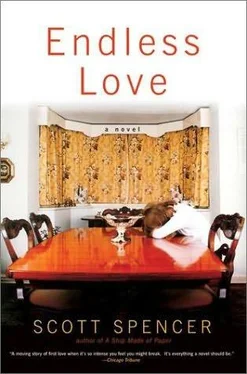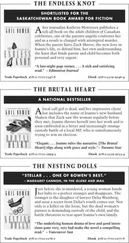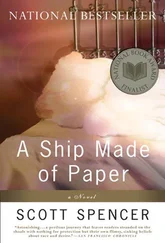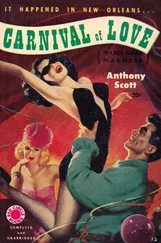I called the second number and let it ring a dozen times before acknowledging it was trilling away in an empty house. Then came the third number, and this time I was answered by a young man who sounded as handsome and relaxed as the first woman had sounded friendly.
“I’m calling Jade,” I said. “Is she there?”
There was a pause—memory of heartbreak? cuckold’s aphasia?—and then he said, “I don’t think she’s here. You want to hang on? So I can check?”
“Please.” He seemed genuinely doubtful whether or not she was there, though I couldn’t say if this meant her presence was in question or if she might not be accepting calls.
“Who’s this?” he asked, the voice friendly and motiveless.
I hesitated. “This is Dave,” I said. Dave? Who was that supposed to befuddle? That wasn’t a mask; it was a false nose. I listened to my intermediary’s footsteps disappear on the other end of the line and imagined him walking through an enormous slipping-away Victorian house, not unlike the Butterfield house in Chicago but much larger, and intersected by drafts, with mattresses on the floor, Marx Brothers posters on the walls, and cartons of milk name-tagged in the Korean War refrigerator. Ah: one of those informal, nonideological college communes. A bunch of great guys and gals pitching in and saving on the rent.
“She’s not here,” said handsome Sean, or Philip, the commune’s champion kyacker. “I didn’t think she was, but you never know with Jade.”
“Oh,” I said, in an amazingly dead voice, as if my throat was lined in brick. “When will she be in? Do you know where I could reach her?”
“She might be at the music barn. I don’t know. She was supposed to go to that thing at Sophie’s farm but I think it was canceled.”
“God.” It was too amazing: music barn, Sophie’s farm, the boy’s voice. I was hovering over Jade’s life like an errant, misled ghost, rattling the shutters in the wrong window. How could I have made this arduous journey and still be without her?
“Do you want to leave a message or something?” he asked.
“Yes,” I said, but left it at that.
He waited—I don’t know how long. He had a healthy respect for the unspeakable.
“This is a friend of hers,” I said. I seemed to have wandered back to the beginning of the conversation, like a nervous rat in a maze. I was sprawled on my back, holding the phone with both hands and staring at the texture of the paint on the ceiling. It looked like chicken skin. “You have no idea when she’ll be back?”
“No,” he said softly.
“But this is where she usually stays, isn’t it? At this number?”
“Who is this?”
“Dave. I told you. This is Dave.”
“But who are you?” Well, I knew those long tender sessions that must have taken place at the commune, just as they did at Rockville, those conversations that alternated between anecdote and lament, and it was my foregone conclusion that the name David Axelrod was familiar to that handsome sentinel at heaven’s oak door.
“Oh, I’m an old friend of hers. A friend of the family.” It seemed both risky and unkind to leave a true message. I didn’t want her to come home and find my name thumb-tacked to the communal bulletin board. “I’ll get in touch with her later.”
“I’ll tell her you called, Dave.”
“No, that’s all right.” I wanted to warn him not to, but seizing on a bit of strategy with all the subtlety of an opera tenor plunging a knife into his breast, I said, “It’s no big deal. I’ll catch up with her.”
“OK,” he said.
“Don’t even mention anything,” I said.
“OK, Dave. A friend of the family.”
“No! That’s the whole thing. Don’t even mention it.” I thought for a moment and was seized from behind by what seemed a rather brilliant idea. “Dave’s not even my name,” I said.
“OK. Who is this?”
I very quietly hung up and kept my hands on the phone, just as I did when I was in Chicago and allowing myself just a few calls a day from my list of Butterfields. A wave of futility came over me, followed by an equally powerful wave of humiliation. It wasn’t until I placed the phone on the bedside table and buried my face in the cool, barely yielding pillow that I remembered this hadn’t been one of my ordinary long-shot phonecalls: I’d just been very close to Jade; I still had the phone numbers; I still had an address; and I was loose in the world and unstoppable.
I showered and rang up room service and had them send me French toast (what Hugh called “lost bread”), ham, orange juice, and a pot of coffee. I had a wedge-shaped view from my window and I watched the Saturday shoppers ten floors below streaming past me like the world viewed from a box camera. How beautiful it all seemed…
I read the newspaper as I ate breakfast like a man with a stable life. Despite the agonies of expectation, I felt I sat in the lap of towering luxury. I ate as slowly as I could, read as slowly as I could, and would have liked to have tied sandbags to the hands of time. Since the day of the fire I had wanted no more of time than for it to move swiftly and humbly along, like a nun in the rain, but now my life had texture again.
I noticed in the newspaper that Krapp’s Last Tape was being performed that night in a small theater on the East Side. It was my favorite Beckett play and I remembered that Ann liked it, too. Tickets only cost four dollars and I could actually afford to attend. Impulsively, I called Ann.
“Sorry to interrupt,” I said. “But I was wondering if you’d like to see a play tonight?”
“Not really. Hugh called.”
“That’s good,” I said. I don’t know what I meant. I might have been feeling all of us coming together again.
“Hugh’s in town with his new girl,” Ann said. “They went to Chinatown. They’re buying spices and oils. She’s also going to introduce Hugh to a healer, a Chinaman much older than the century, who’s going to divulge certain secrets of herbal teas. She’s so much better for him than I am.”
“So are you going to see Hugh tonight?”
“No. They’re going back to New Jersey. Where I’m sure they belong.” Ann laughed; she sounded edgy and she was poking around trying to locate the exact dimensions of her sadness, jabbing at her feelings as if with a stick.
“And you don’t want to see Krapp’s Last Tape?”
“I don’t think so.”
“My treat?”
“I said no .”
We were silent for a moment.
“So should I still give you a call around six?” I said.
“Only if you want to,” answered Ann.
Suddenly restless, I left the hotel and headed for the streets.
I wandered uptown on Fifth Avenue starting at 34th, gazing into the generous-looking windows of electronics shops that featured pocket cameras, battery-operated tape recorders, and short-wave radios. While somewhere near, across the street, or perhaps next door, Hugh and Ingrid were smiling uncertainly at a small circular window with eight-inch glass behind which stood a miniature red wagon that held a pair of diamond and emerald earrings. It was their mild misfortune to have the tastes and appetites of the rich and to suffer the wanting of things they couldn’t even remotely afford—whereas I walked the same street and noted that the carved Mexican chess set could be mine if I wanted it, likewise the Austrian binoculars, and likewise the Japanese setting for eight, with soup bowls and a covered dish, painted my favorite shades of blue and yellow, and marked down from thirty-five dollars to nine.
I could explain this so much better if I’d lived in some other time, if the story of my love was a true ballad, if I could shake my fist at the sky and believe not that I was gesturing at layers of ozone and oxygen, at chunks of mineral and pockets of gas, but at heaven, at a real heaven, alive with intelligence, churning out time and circumstance.
Читать дальше












